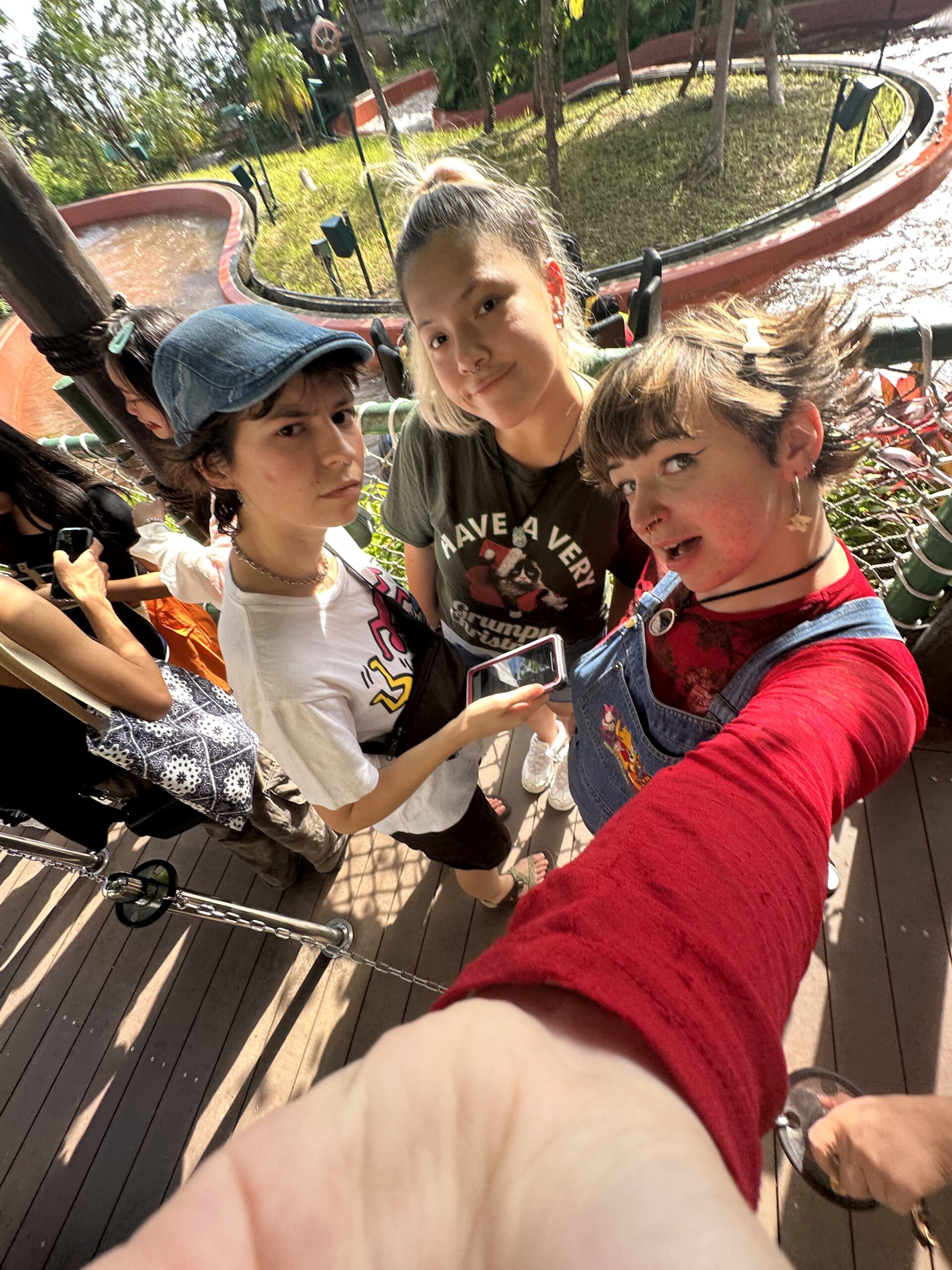
Visiting Hong Kong from Taiwan: what I learned about Taiwanese accents, politics, and my listening proficiency
Last week, I had the opportunity to visit Hong Kong with a group of my CET friends. Emily, my friend who attended elementary school in Xinjiang, wanted to reconnect with her mainland friends while studying abroad. Because Mainland people can’t visit Taiwan unless they have family in Taiwan (which I didn’t know before visiting Hong Kong), she agreed to meet her friend in Hong Kong. She invited me and one of our other friends, Avery, to accompany her to meet her classmate.
Before visiting Hong Kong, I had an imaginary impression of the city. One– I love Wong-Kar Wai (王家衛) films, and I imagined the space covered in neon lights/ hold a romantic feeling. Two– I followed along with the 2019 protests happening in Hong Kong, and the tension and discourse between Hong Kong people, Mainland people, and American people were explosive. From an American media perspective, journalists were critical of China’s “one country, two systems” policy, as journalists described that China was taking away Hong Kong’s rights. Specifically, images of Hong Kong people using umbrellas to protest were a strong image in American media. Having an image of Hong Kong as a revolutionary/romantic city was a strange perception, and I was excited to explore the city outside of the news and the movies.
Landing in Hong Kong, I was surprised to see/people from all different races, cultural backgrounds, and speaking multiple languages. While living in Taiwan, it’s not often that I’ve come across foreigners outside of NTU or away from Taipei 101, so seeing cultural/ language diversity for the first time in two months came as a shock to me. As an American, I am used to being around cultural/language diversity, but I didn’t think I would experience this immediately when landing in Hong Kong.
As we left the airport, it was strange to hear and talk with people in English— especially British-sounding English. Because most people speak Cantonese and English (and Chinese, though less common) in Hong Kong, we weren’t sure what language to use when talking to service people. Between Emily, Avery, and I, we decided to switch between English and Chinese depending on what the “vibes” of the interaction were. Often, we started speaking Chinese first and would get responses in Cantonese, and feel our way through the conversation. Although Mandarin and Cantonese are not mutually intelligible languages, often, the Cantonese speakers we talked to understood some Chinese.
While in Hong Kong, we weren’t perceived as “foreigners” in the same way as living in Taipei. As a white person speaking Mandarin in Taiwan, I am constantly asked, “What country are you from? Why did you come to Taiwan to study Mandarin instead of China?” What do you like about Taiwan versus China?” Although I welcome these questions, Avery, Emily, and I were not approached this way in Hong Kong. Often, people would see us and not say anything– or ask us where we’re from if we’re having a longer conversation in Chinese. I thought this difference was interesting– but I know Hong Kong is very international, and Taipei is not as commonly visited by foreigners (in comparison to Hong Kong).
When people spoke Chinese to me in Hong Kong, I also felt like I understood their accents more clearly than Taiwanese accents. When learning Chinese in college out of textbooks in the US and Taiwan, we are still exposed to the “mainland” way of saying words, but Taiwanese people pronounce the same words with different tone inflections (mainland tone inflections are sharper, Taiwanese tones are softer)— which often leads me to be confused in conversation in Taiwan. In Hong Kong, I talked to many mainland Chinese people– whose accents reflect more of what I’ve heard in the States/learned in textbooks– and I understood more of our conversations. Because I could understand better, I felt more confident in speaking Chinese with strangers.
While in Hong Kong, Avery, Emily, and I were not familiar with the local history, and we were curious about Hong Kong’s relationship with China in comparison to Taiwan. Specifically, we were interested in: “Why does Hong Kong still maintain many British elements even after the British handed Hong Kong back to China in 1997?” After talking to some locals and visiting Museums, we heard some people say, “Well, the British let the Hong Kong people have more freedom/ do what they wanted, versus Mainland China imposing restrictions on Hong Kong people’s freedom.” — however, I’m still not clear on this answer. Compared to Taiwan, there is a lot of Japanese influence in Taiwan (architecture, kawaii transport, convenience store culture) and a stronger affinity for Japan’s colonialism to China. In Taiwan (similar to Hong Kong’s colonialism, but definitely not the same), there is a stronger affinity for non-Chinese colonialism. Visiting Hong Kong, having this comparison was interesting, because I was not expecting to have political/colonial comparisons to Taiwan.
Although I could only spend four days in Hong Kong, I indirectly learned a lot about Taiwan in the process. I feel like I gained a greater appreciation for Taiwanese culture (how nice people are, the biking system, how I feel safe here), and I can see myself living in Taiwan for over three months. Although I cannot always understand Taiwanese accents, I hope living here longer in the future will improve my listening skills :)

